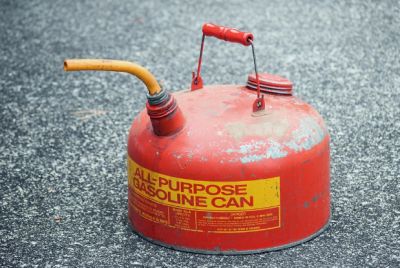In-depth Analysis of Safely Handling Diesel Fuel

Diesel fuel is critical for our transportation, generators, cooking, heating, and so many other things, and we must understand how to handle diesel fuel safely.
Handling diesel can be dangerous as the attributes that make it such a valuable commodity also make it very dangerous to store and work with. Diesel is extremely flammable, and if handled incorrectly, a disaster can occur, which can seriously endanger your home or business and people’s lives.
To help keep people safe, this article is an in-depth analysis of safely handling diesel fuel.
Read the Diesel Fuel Safety Data Sheet
The first thing that you must do when handling diesel fuel is to read the Diesel Fuel Data Safety Sheet carefully. A Safety Data Sheet is a document prepared by fuel manufacturers. It will provide you with information on the safety aspects of diesel fuel, including how to store it, what the risks are, and how to mitigate them.
Fuel Safety Data Sheets are very long and technical, but you should pay particular attention to the left-hand side, which will explain the conditions for safe storage, including incompatibilities.
Do not assume that diesel is stored the same as petrol or natural gas because every fuel is slightly different.
Follow Common Sense Safety Procedures
Many safety procedures when handling diesel fuels are common sense, but unfortunately, too many people take them for granted or are not vigilant enough.
Diesel fuel should never be handled near any open flame or ignition source, and you should never smoke a cigarette around diesel. Diesel vapor is especially dangerous, so be very careful when diesel fuel may have vaporized, as explosions can happen with even the smallest spark.
Always give diesel fuel your full attention and treat it as a very dangerous substance.
Store Your Diesel Somewhere Safely
Storing your diesel fuel somewhere safe is important in ensuring your family is safe. Many of us have a diesel generator in our homes to provide backup power, which we use for our businesses or on camping trips, but you should not store the fuel in your house irresponsibly.
The best option is to store your fuel in a portable fuel tank somewhere safe away from your home, like in a detached shed. The experts at https://www.ablesales.com.au/portable-truck-ute-fuel-tanks/ have a great selection of portable fuel tanks, enabling you to keep your diesel fuel away from your family’s home or business main offices.
Don’t ever store your diesel fuel in something that is not meant to be stored, and of course, make sure that you keep it away from ignition sources. So many jobs require us to keep diesel, such as truck drivers or construction companies that use diesel to run their power tools using a portable generator.
A fire in a business office due to bad diesel storage can cause huge damage, and your business insurance may not cover the costs if your incorrect storage caused it. Never store fuel in a building you can’t afford to burn down.
Never Store More Diesel Than You Are Allowed to by Law
Storage limit laws exist because keeping too much diesel fuel in one place creates a huge fire risk.
It is so important to stay within the legal storage limits. If you have any questions about rules and regulations, you can contact your local fire department to ensure you are legally storing your fuel.
If you are storing diesel fuel beyond the legal limits or outside of safe practices that can not only be a huge fire or explosion risk but can also negate your homeowners or business insurance, so you need to make sure that whatever you do, you store and handle diesel fuel with sensible judgment.
 Do Not Expose Diesel to Extreme Temperature Conditions
Do Not Expose Diesel to Extreme Temperature Conditions
This is so important as diesel can be very volatile, and exposure to extreme temperatures can cause it to react in a way that could be very dangerous.
In an ideal situation, the building where you keep your diesel fuel should be insulated to protect it from high and low temperatures.
It is much better for your fuel and safety if you can install a system to moderate the temperature. This will mean that you don’t go from really high temperatures in the summer to really cold temperatures in the winter, which can cause major issues.
Diesel has a problem because it gels in cold temperatures, so you need to be aware of that. Additionally, ensure that your storage place has lots of good ventilation, as diesel fuel needs lots of ventilation to be stored safely.
Rotate your Diesel Fuel every Six to Twelve Months.
Like gasoline, diesel should be rotated every six to twelve months, although there are stabilizers that you can use to help extend the life of your diesel fuel. Once diesel fuel has gone bad, it will not burn efficiently enough to be used as fuel, and it can still be very dangerous.
When you rotate your diesel fuel, cleaning your storage tank thoroughly is important to remove any remnants of the old fuel that could contaminate your new batch.
Take all the necessary safety precautions and wear the correct personal protective equipment when cleaning your tank. It seems obvious, but never conduct hot work on your diesel fuel storage tanks while fuel is in the tank.
Diesel is a fantastic and versatile fuel with so many great uses in our homes, vehicles, and businesses. Following the correct safety procedures when handling diesel fuel is important to avoid a catastrophic situation.
Make sure to read this analysis thoroughly if you are planning to handle diesel fuel, and you will be able to do so safely.






